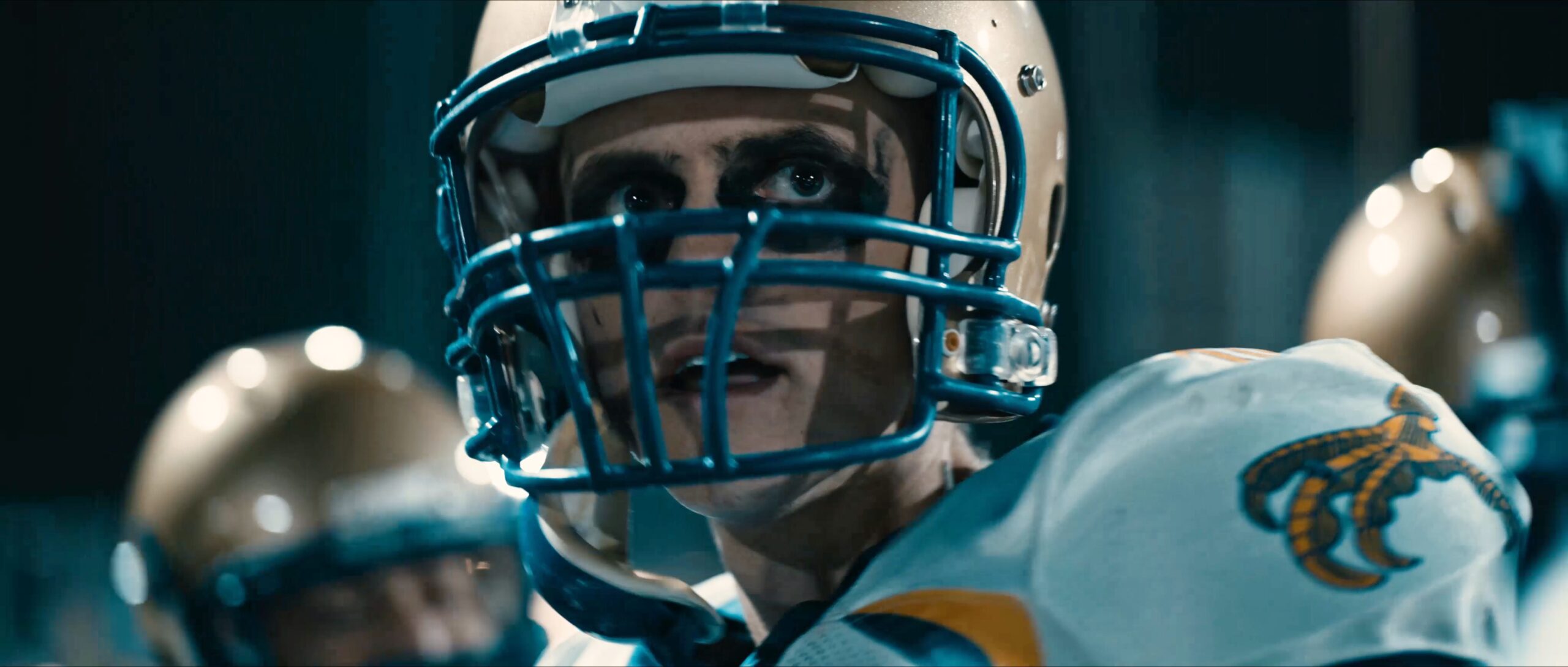Riley marks the directorial debut of Benjamin Howard who delivers an oftentimes conventional film which is elevated in parts by his personal investment in its subject matter and a strong acting debut from lead Jake Holley.
The film follows a closeted high-school football star Dakota Riley (Jake Holley) as he struggles with his own sexuality while navigating his friendships, athletic career, and a relationship with his girlfriend. If this setup sounds familiar or even a tad derivative that is because it is. Narratives of closeted high-school students, especially athletes, have appeared across films and television often enough to almost qualify as a trope. The normalisation of the queer community this ubiquity represents is an incredible feat worth celebrating, but it also means the stories being told need to start evolving lest they begin to feel a bit stale. In just the last few months we’ve seen several high-profile and diverse films with gay leads ranging from the hauntingly beautiful All of Us Strangers, to the bubbly Bottoms, to the guilty pleasure pulp of Red White and Royal Blue. Likewise, this years BFI Flare has been bursting at the seams with diverse, genre bending, and boundary pushing fare.
Riley on the other hand keeps to the well-trodden ground with scenes of high-school and college parties, an overbearing father stroke football coach, homophobic slurs from the jocks, and Riley’s own affectations of gruff masculinity. These are all things which still bear much truth, and I am sure will still resonate with many people today. It is to my own and everyone’s good fortune to be living in a time when such scenarios can feel a bit outdated. However, this does not stop certain moments from creaking at the edges and the whole film feeling repetetive of the work which preceded it. Again, this does not undermine the film’s honesty nor its potential to prove powerful for many people.
Howard’s own investment in the story, which is based on his own life, really helps the film as his direction offers a verisimilitude to the story, and his catharsis as a filmmaker really bleeds through the screen. The camerawork in particular takes on this furtive almost peering quality when filming Riley’s teammates, which expertly reflects his own sexual repression. Likewise, sequences of football matches and workouts possess a momentum and punchiness which only a former athlete could craft.

The relationship between Riley and teammate Jaden (Colin McCalla) also feels authentic as Howard effectively captures the interplay and confusion between platonic love and romantic infatuation Riley feels towards his friend. The pair so brilliantly evocate the simmering hormones of adolescent self-discovery which all teenagers experience. I also admired the three-dimensional portrayal given to Riley’s girlfriend Skylar (Riley Quinn Scott) as we are shown the knock in confidence and self-worth which Riley’s sexual struggles have on her, and I would have loved the film to explore this dynamic even further.
Holley also gives an all-round assured performance as Riley, seamlessly integrating the confident forward-facing football star with the internally conflicted student. What really shines through in his performance though is Riley’s overriding desire to just be loved and touched. In one sexual encounter Holley’s face so beautifully showcases not only the sensual pleasure but, more importantly, the emotional release that being intimate with another man provides.
The film loses its footing in its final act as it leans on wrought sentimentality and a saccharine ending which retreats into a world of American coming-of-age and sports film cliches. Nevertheless, Riley is a well-intentioned film which contains bright sparks in a largely formulaic story.
UK release date TBA

